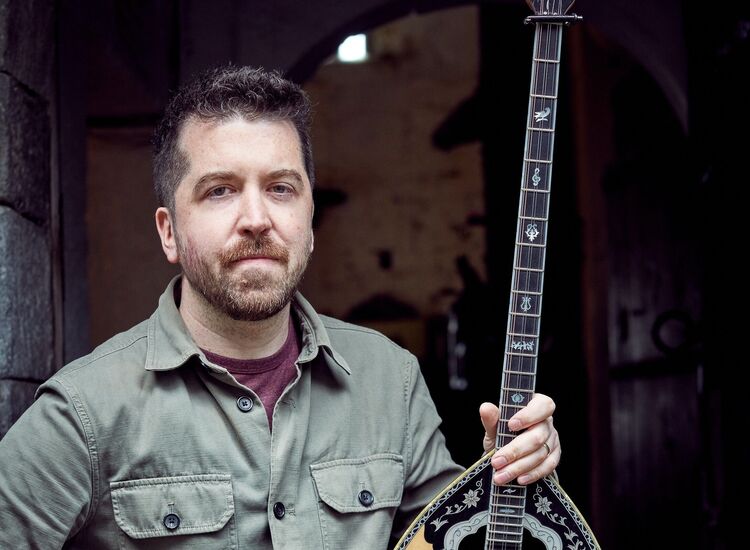Welsh radical and democratic socialist Aneurin Bevan: “We know what happens to people who stay in the middle of the road. They get run down.” NATIONAL LIBRARY OF WALES
By Peter McDermott
The New York Times published earlier this month an interesting opinion piece by conservative author Timothy P. Carney entitled “The Right’s Lena Dunham Fallacy.”
“Turn on any talk show, open any right-leaning editorial page,” Carney wrote, “and you’ll see it: The reduction in marriage rates and birthrates in America is wholly and singularly the fault of feminists graduating from Wesleyan with women’s studies degrees, declaring marriage to be archaic and motherhood to be oppressive.”
“Call it the Lena Dunham Fallacy. Rooted in a vague perception of the life and work of the ‘Girls’ creator, it holds that the behavior we see on HBO or in the lives of some Hollywood stars is the norm among the much broader swath of college-educated Americans.”
In fact, Carney, the author of the recent “Alienated America: Why Some Places Thrive While Others Collapse,” said that college-educated women marry at higher rates than non-college educated women – 65 percent by age 40 in the case of the former and 50 percent for the latter.
Working class women, he said, are also more likely to divorce. And while “11 percent of babies born to college-educated women are born out of wedlock, according to Pew Research Center, the out-of-wedlock birthrate is above 50 percent for mothers who never went.”
There is a tendency right across the spectrum, I’d argue, to overrate the influence of “elites” or the various versions of the “establishment” or “mainstream media” for shifts in personal behavior and choices. Sometimes people just do what they want to do.

Rep. Alexandria Ocasio-Cortez has made a big impression since going to Washington in January.
In the late 1950s and ‘60s, nine million Italians moved from the rural South to the cities in the North. One historian noted of this phenomenon that the two organizations to which millions gave their allegiance in post-war Italy had no say in the matter. Neither the Catholic Church nor the Communist Party told anyone to migrate.
Choices people make in modern Western societies are their own. And that tends to hold when it comes to political points of view. It’s wrong, I believe, to assume automatically that people are duped or cowed when they express preferences for points of view one doesn’t like.
Again, following from Carney’s point, it’s not at all clear how elites or the establishments or the media are shaping public opinion or to what extent they are following what’s going in society beyond their control. If an authoritarian rightist leader finds a following in 20 percent of the population, isn’t it because he or she has successfully identified that part of the populace that has authoritarian instincts and mindset?
That’s not to say that the tone set by a religious or political leader isn’t of vital importance (the question about how rhetoric influences the actions of a lunatic fringe was raised again after the slaughter in Christchurch on March 15.)
Through all of society’s changes, big-brand organizations must necessarily allow for a variety of points of view; if a single perspective grabs hold of the reins of power, would the other viewpoints not seek a home elsewhere?
Let’s look at the historical example of Italy again. It became increasingly obvious in the wake of Vatican II from the late 1960s onward that its reforms were being interpreted in liberal, moderate and conservative ways (and were also being rejected outright by some traditionalists). Likewise, the Italian Communist Party had a left, a center and a right (and additionally a small fourth faction that remained loyal to the Soviet Union). These currents of belief within church and party, one could argue, reflected to some degree the diversity of opinion among the population as a whole.
So, while acknowledging such diversity, how does one win hearts and minds for one’s own cause?
Rep. Alexandria Ocasio-Cortez, an impressive performer since going to Washington in January, has already offered two very practical approaches and a third, which, in my view, doesn’t help at all.
Ocasio-Cortez was praised for her questioning of Michael Cohen, Donald Trump’s former personal lawyer, when he appeared before the House Oversight and Reform Committee. The 29-year-old displayed competence, first of all, by using her time efficiently. She was particularly effective when building questions around revelations from the New York Times’ groundbreaking study of family financial shenanigans going back to Fred Trump. Overall, Ocasio-Cortez followed a simple leadership principle by linking the left, and her own political values, with an issue that concerns broader swathes of opinion within her party and beyond.
And brownie points, too, for telling her supporters to become fully immersed in the Girls Scouts and other community organizations. If you roll up your sleeves and do the hard work as a volunteer then your neighbors will be more open to you when you’re wearing your AOC sticker come election time.
However, considerably less effective, I’d suggest, is the AOC statement: “Moderate is not a stance. It’s just an attitude towards life of, like, ‘meh.’”
One is reminded of British Labour leftist and democratic socialist Aneurin Bevan, the post-war Minister for Health, who said that those who stand in the middle of the road get run over (or "run down" in Welsh vernacular). Lines like those entertain the base, but don’t do much to make it bigger.
If you think someone’s religion is insufficiently fervent, is it appropriate to say “meh”? Would you say they were – spiritually and theologically speaking – in danger of getting run over?
The main problem, though, is that millions of voters happily describe themselves as “moderate”; and the word can also be used to denote all sorts of ideologies and positions, some of them informed by a set of principles or a moral worldview.
Moderates can often be wonkish and thus good on policy detail. Not seeing the bigger picture, you could say, is a strength. Take Michel Rocard, a former French prime minister who died in 2016. He started on the far left of parliamentary politics in the 1970s before joining the mainstream Socialists under future President Mitterrand and situating himself on the party’s right wing. It was Rocard, who highlighted the potential for problems with the immigrant banlieues on the edge of France’s cities and the need to address issues of inclusion. Mitterrand’s response and that of the base (a composite activist was a male Catholic schoolteacher; white, of course) was a Gallic shrug.
Rep. Ocasio-Cortez might come to see that cooperating with wonkish moderates helps the left. In the first year of the presidency of George W. Bush, 43 percent of Democratic or Democratic-leaning voters identified as “moderate”; 23 percent were “conservative” and 29 percent “liberal.” Sixteen years on, in the first months of the Trump occupancy of 1600 Pennsylvania Ave., the figures were 36 percent “moderate,” 15 percent “conservative” and 48 percent “liberal.”
That shift was barely perceptible from year to year, but gradual change is noticeable enough on a graph over time. Still, an unpopular war and an increasingly unpopular president, tax cuts that favored the wealthy, Hurricane Katrina, the Great Recession, the Tea Party, the GOP’s fierce resistance to Obama’s agenda and Hurricane Sandy had little dramatic effect on the percentages. The tilt towards liberalism only became rather more obvious as President Obama’s second term progressed.
Is that because of greater Democratic Party confidence in recent years? Does an improved economy increase progressive optimism? Did some change in a liberal direction whet the appetite for more? Does Democratic rule create socialists in a way that a GOP administration does not?
Obama is the only Democratic presidential candidate ever to win two popular majorities (that is post-Jim Crow, at which point America joined the community of free and democratic nations) and so perhaps an obvious next step was a strong left-wing challenge for the nomination, which happened in the form of Bernie Sanders’s spirited campaign.
Whatever the case, it remains true that – and this is another reason why AOC’s comment isn’t helpful to the cause – African Americans and Hispanics, solid parts of the Democratic base, are more likely to identify as “moderate,” as are working-class whites who vote for the party; college-educated voters tend to embrace the “liberal” label.
Ultimately, whether its supporters are called “liberal,” “moderate,” “progressive” or “socialist,” history has shown that change requires a great deal of consensus – a super majority, if you will. FDR had it when pushing through some of his lasting reforms, like Social Security (a super majority of public opinion supporting it has stopped billionaire activist attempts to destroy it). And Clement Attlee had it for his post-war Labour government in Britain (and the National Health Service has had a super majority of popular support throughout its history also).

William Beveridge talking with an American fighter pilot hospitalized at University College, Oxford, during World War II. IMPERIAL WAR MUSEUM
When Attlee was deputy prime minister in 1943, senior civil servant William Beveridge in his report “Social Insurance and Allied Services” proposed the “cradle to the grave” system to deal with the five “giant evils” of Want, Disease, Ignorance, Squalor and Idleness. The trade union movement was ecstatic. Sections of the press fell in love with him.
In his recent Orwell Prize-winning biography “Clement Attlee: The Man Who Made Modern Britain,” historian John Bew wrote: “Struck by the massive popularity of the report — trumpeted in numerous languages by the BBC — the government decided to have it translated into French and German and dropped across Nazi-occupied Europe, including German cities, as an explanation of Britain’s war aims, alongside the RAF’s bombing campaign.”
As it happened, Beveridge was a supporter of the centrist Liberal Party and went on to lead that party in the House of Lords; Aneurin Bevan took care not to run him over.
Like AOC, like a majority of us in one way or another, both men were interested in change you could believe in.
Analysis and commentary can be found on Pages 8, 10, 11, 12 & 13 in this week's print/digital edition of the Irish Echo published today.








